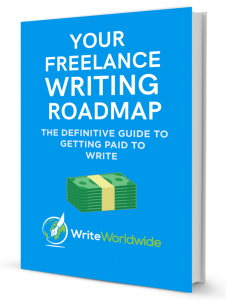Welcome to the sixth in our series of WriteWorldwide reader interviews. Today’s interview is with Cosmos Omondi, an ambitious freelance writer from Kenya. Read on to find out what he had to say about his writing journey …
1) Please introduce yourself to the WriteWorldwide readers.
My name is Cosmos Omondi, Heating Ventilation Air Conditioning and Refrigeration (HVACR) expert, and a writer in the making. Basically, technical school trained me to work with mechanical tools, but writing is the venture I’ve chosen to pursue for myself.
2) Why did you choose to be a writer, and have you experienced much success yet?
Since I left college I’ve been actively employed in the private sector without interruption for over 10 years. In that time I’ve risen in rank and wages. When my contract with the last organization I worked for ended, I didn’t immediately get another job offering a salary I was comfortable with.
After staying at home for a long time without a job, I thought, “I have this computer in the house. How can I use it to generate income?” I had heard about freelance writing before, so I googled “freelance writing” then came across Freelancerkenya.com and Freelancer.com; my quest to become a writer began! I got excited that every written piece on the internet is the work of somebody somewhere, and loved the idea of becoming one of them.
Although up to the time of this interview I have only enjoyed a small amount of financial success with writing, I have made a step in laying my foundation.
Since Bamidele Onibalusi’s Earn Your First $1,000 as a Freelance Writer Challenge, I stopped writing 500 words for $2.25, and instead focussed on creating my website and building my social proof. I’ve now been published on HuffPost and Thrive Global. I’ve also contributed technical solutions to Quora and interacted with professionals in groups relevant to my niche on social media.
I have had a dry spell, yes, but earnings from technical services I offer as an HVACR mechanic have sustained me.
Interestingly for the first time, around a week before this interview, I saw what I believe is the fruit of having a footprint on social media. I sealed a deal of $230 with a local client, payable as a labor fee to install four Air Conditioners. It have not been paid yet, though.
I attributed that deal to an article I contributed to a LinkedIn discussion group. This engineer and entrepreneur was impressed with my grasp of the subject and, after confirming I am a technician in town, asked me to assist him to install ACs for a media house office.
This convinced me that a good foundation and results are proportional to each other.
3) As an ESL writer, have you faced any challenges?
Yes, I have faced challenges.
Besides cold pitching, I still bid for writing jobs on some of the better job boards. Many a time I lose to native English writers during competitive bidding. Nevertheless, I believe it is just a matter of time, and that I will break through.
When a native English speaker beats me to a writing job I thought I was qualified for, it has an impact on my morale. But reading testimonies from fellow ESL freelancers explaining how they beat the odds makes me push on. After all, successful ESL freelance writers attest that the legwork involved in building a successful freelance writing business is not a walk in the park.
4) What’s one thing about you most people don’t know?
Neighbours, friends, and work associates don’t know that I’m struggling to strike a balance between two commitments; trying to become a full-time writer, and doing mechanical work.
When I’m not out working on machines, I’m quietly indoors figuring out how to market myself in the competitive arena of the internet. It is mentally draining work that only online beginners and established writers can understand.
Others suspect I am involved in illegal activities they can’t even explain; many people still don’t understand the meaning of working online!
And for my friends who made it in the Earn Your First $1,000 as a Freelance Writer challenge, they don’t know how eager I am too. Soon, I will give a testimony of how I achieved my first $1000 using Oni’s challenge guidelines. Right now, I am still $770 behind the finish line.
5) What would you like to see more of on the WriteWorldwide blog?
I would like to see more discussion about the formula we can implement to narrow the gap between ESL writing and native writing.
I would also like to read more interviews with successful writers – native and non-native – to understand the hurdles they passed to reach where they are today.
So far I think the WriteWorldwide blog is on the right track. Personally, I consider the figures behind the blog to be influencers in the area of freelance writing.
I do wonder, are the limitations ESL writers face unique to non-native writers?
I’ve read articles written by native English writers complaining about writers who use English as their first language. One critic (a native writer) said that some of the worst written content – in terms of grammar and relevance – she’d ever read was written by native English writers!
6) Are you connected with other ESL writers, and is that helping to boost your confidence?
Yes. Some of them I met before and during Oni’s challenge: Walter Akolo, Bamidele Onibalusi, Emenike Emanuel, Arindam Dasgupta and others. I have also connected with writers here on the WriteWorldwide blog.
I visit these people’s blogs and read their posts. From them, I have learned that writing is about offering your readers solutions using succinct language, not jargon that your readers have to look up in the dictionary. I’ve also learned that you don’t necessarily need to have a degree in the English language to succeed in freelance writing. That boosts my confidence.
7. What’s your favourite aspect of being an ESL writer?
Inferiority. This may sound weird – but the feeling that I am small compared with my role models in the writing industry drives me on. I listen keenly when Spike talks about editing; when Walter talks about internet marketing; and when Oni talks about getting high paying clients.
8) What’s your daily writing routine?
Although I still don’t have a client base, I have many topics in my draft folder to write about.
I try to write no less than 200 words a day on a given topic I am inspired about. I do this either in the mornings, on days that I don’t have a contractual job away from home, or in the evenings if I was out during the day.
I also look for trending queries in my niche on Quora that I can answer. I do this with the aim of attracting readers to my site.
9) What methods do you use to keep your writing skills sharp?
I read books to learn different writing styles. Currently, I’m reading Acts of Faith and The Last King of Scotland.
I read somewhere that most people on the internet are looking for solutions. They aren’t attracted by jargon-filled rants, but value concise answers to problems. Personally I highly value rich, in-depth articles that go into detail about how to improve my writing skills.
I also use the free versions of the online tools Grammarly and Hemingway Editor. I find them useful for helping me edit common mistakes in my writing.
10) What are your plans for growing your writing business and client base in the future?
I plan to cast my net wide. I’ll continue guest posting (both paid and non-paid) for publications and blogs where potential consumers of my expertise are. I hope that this will drive my ideal clients to my site.
I read an expert opinion that nobody is stupid (academically), but there are slow learners and fast learners. I am in the category of slow learners; I use Oni’s “$1000 challenge” as a benchmark to judge myself.
A year down the line, fast learners like Nick Darlington and others are now enjoying writing success. Slow learners like me are almost there.
I didn’t understand this concept of choosing a niche before, but now I do. I want to be an authority in my niche by generating the best writing on mechanical technology – sales and service. I know there are fellas like Nick for whom multi-niching works perfectly. I consider them blessed.
God willing, I want to give my search for local clients the same priority as my search for overseas clients. Although I’ve already earned from one local client – not in writing per se – my prospects (writing clients) are promising.
My dream is that six months from now I’ll have enough quality writing clients that I’ll be able to choose whether or not to write full time as a career.



